In today’s Gospel reading, we hear that Peter said to Jesus, “We have given up everything and followed you.”
Jesus responded and said, “Amen, I say to you, there is no one who has given up house or brothers or sisters or mother or father or children or lands for my sake and for the sake of the gospel who will not receive a hundred times more now in this present age.”
Let us put ourselves in the place of Peter and the Apostles. Think about all they gave up for Jesus. They gave up jobs. Some gave up family and friends. They gave up their safety. And nearly all of them gave up their lives. Throughout the three short years that Jesus walked with them and taught them, they got to know him. They watched him perform miracles. They understood his heart. And they truly believed that he was the Son of God.
If they did not believe this, then after his death, they would have gone back to their normal lives. They certainly would not have given up their lives for someone who was just a man. No, they knew he was God.
Today, God asks that we put him first in our lives. He asks that we have no idols before him. Idols can be anything from money to material goods to vices to social media.
Do we spend more time on TV or on our phones than we do in prayer? Do we skip Mass because we are too busy or because there’s a game on that we want to watch instead? Do we forgo building our relationship with Christ because we are focused on the things of this world?
God doesn’t ask us to totally give up all material things or pleasurable times, but he does ask us to put him first. And if we truly knew him, we would want to! So we have to ask ourselves, Do we really know our Lord?
Think about it this way. When we really know a good friend, we want to spend time with that person. We do things to make them happy. We go out of our way to brighten their day. It should be the same with God. So let us vow today to put him first in our lives and to make time for him every day. And not just the few sleepy moments before bed, but quality time—our first fruits.
There are lots of ways we can do this. Get up ten minutes earlier each day. Take a break at lunch. Turn off the radio in the car and pray. Go on a daily walk and talk to God. Read the Bible. If we want to improve our relationship with him, we will set aside time each day to do so.
Look at all Christ gave up for us. What will you give up for him?
En la lectura del Evangelio de hoy, escuchamos a Pedro decirle a Jesús: “Señor, ya ves que nosotros lo hemos dejado todo para seguirte”.
Respondió Jesús y dijo: Yo les aseguro: Nadie que haya dejado casa, o hermanos o hermanas, o padre o madre, o hijos o tierras, por mí y por el Evangelio, dejará de recibir, en esta vida, el ciento por uno”.
Pongámonos en el lugar de Pedro y de los Apóstoles. Piensa en todo lo que renunciaron por Jesús. Renunciaron a sus puestos de trabajo. Algunos renunciaron a familiares y amigos. Renunciaron a su seguridad. Y casi todos ellos renunciaron a sus propias vidas. A lo largo de los tres cortos años que Jesús caminó con ellos y les enseñó, llegaron a conocerlo. Lo vieron realizar milagros. Entendieron su corazón. Y realmente creyeron que él era el Hijo de Dios.
Si no hubieran creído esto, después de su muerte habrían vuelto a su vida normal. Ciertamente no habrían dado sus vidas por alguien que fuera sólo un hombre. No, sabían que él era Dios.
Hoy, Dios nos pide que lo pongamos en primer lugar en nuestras vidas. Pide que no tengamos ídolos delante de él. Los ídolos pueden ser cualquier cosa, desde el dinero hasta los bienes materiales, los vicios y las redes sociales.
¿Pasamos más tiempo en la televisión o en nuestros teléfonos que en oración? ¿Decidimos faltar a la misa porque estamos demasiado ocupados o porque hay un partido que queremos ver? ¿Dejamos de mejorar nuestra relación con Cristo porque estamos enfocados en las cosas de este mundo?
Dios no nos pide que abandonemos por completo todas las cosas materiales o los momentos placenteros, pero sí nos pide que lo pongamos a él en primer lugar. Y si realmente lo conociéramos, ¡vamos a querer hacerlo! Entonces tenemos que preguntarnos: ¿Realmente conocemos a nuestro Señor?
Piensalo de esta forma: cuando realmente conocemos a un buen amigo, queremos pasar tiempo con esa persona. Hacemos cosas para hacerla feliz. Hacemos todo lo posible para alegrarle el día. Lo mismo debería ser con Dios. Así que, hagamos es compromiso hoy de ponerlo en primer lugar en nuestras vidas y dedicarle tiempo todos los días. Y no sólo los pocos momentos de sueño antes de acostarse, sino un tiempo de calidad, los primeros frutos.
Hay muchas maneras en que podemos hacer esto. Levantarse diez minutos más temprano cada día. Tomar un descanso durante el almuerzo. Apagar la radio en el carro y rezar. Salir a caminar diariamente y hablar con Dios. Leer la Biblia. Si queremos mejorar nuestra relación con él, dedicaremos un tiempo cada día para hacerlo.
Mire todo lo que Cristo entregó por nosotros. ¿A qué renunciarás por él?
 Susan Ciancio has a BA in psychology and a BA in sociology from the University of Notre Dame, with an MA in liberal studies from Indiana University. For the past 19 years, she has worked as a professional editor and writer, editing both fiction and nonfiction books, magazine articles, blogs, educational lessons, professional materials and website content. Thirteen of those years have been in the pro-life sector. Currently Susan freelances and writes weekly for HLI, edits for American Life League, and is the executive editor of Celebrate Life Magazine. She also serves as executive editor for the Culture of Life Studies Program—an educational nonprofit program for K-12 students. You can reach her at slochner0.wixsite.com/website.
Susan Ciancio has a BA in psychology and a BA in sociology from the University of Notre Dame, with an MA in liberal studies from Indiana University. For the past 19 years, she has worked as a professional editor and writer, editing both fiction and nonfiction books, magazine articles, blogs, educational lessons, professional materials and website content. Thirteen of those years have been in the pro-life sector. Currently Susan freelances and writes weekly for HLI, edits for American Life League, and is the executive editor of Celebrate Life Magazine. She also serves as executive editor for the Culture of Life Studies Program—an educational nonprofit program for K-12 students. You can reach her at slochner0.wixsite.com/website.
Feature Image Credit: Gustavo García, cathopic.com/photo/9300-christ-carrying-the-cross
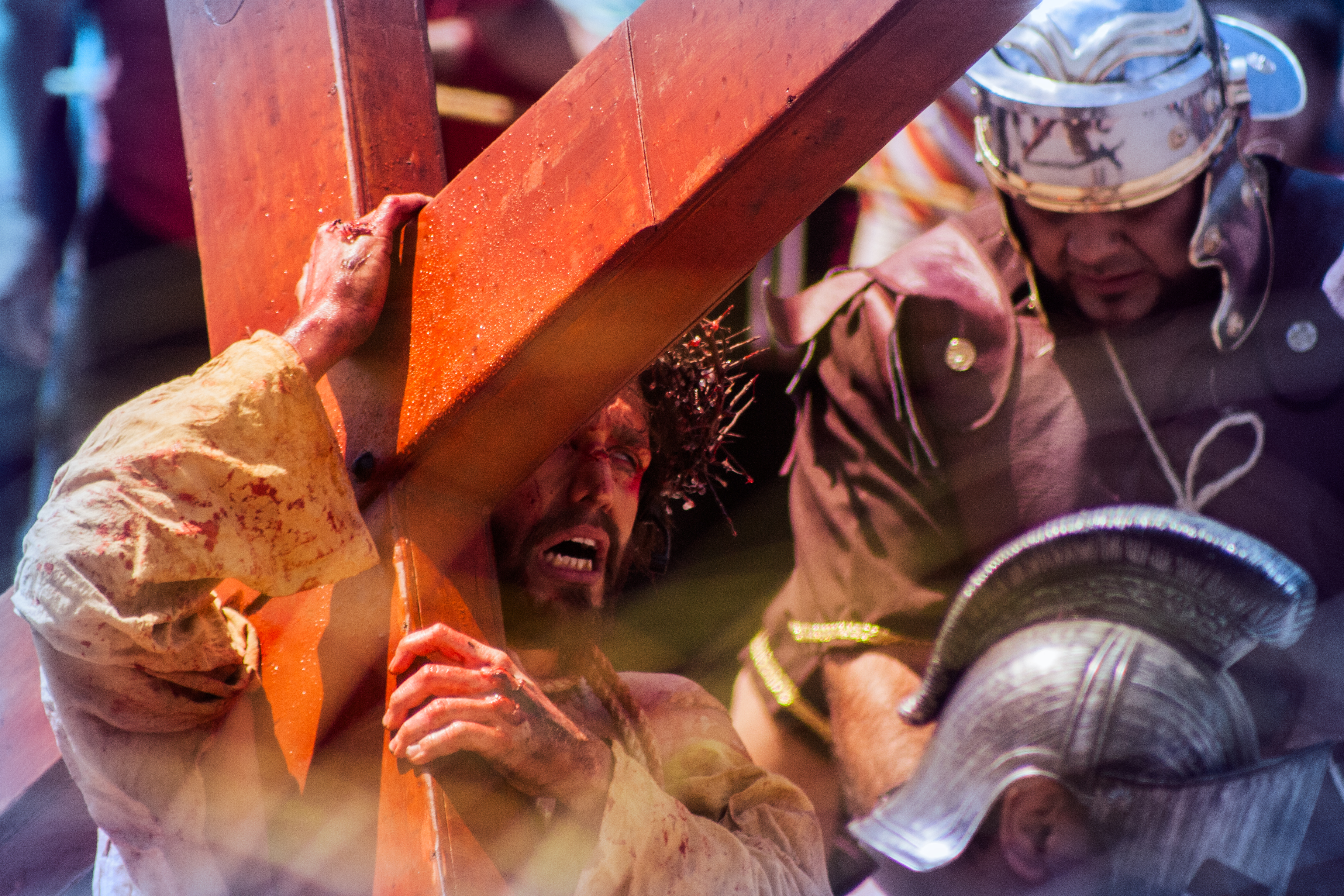
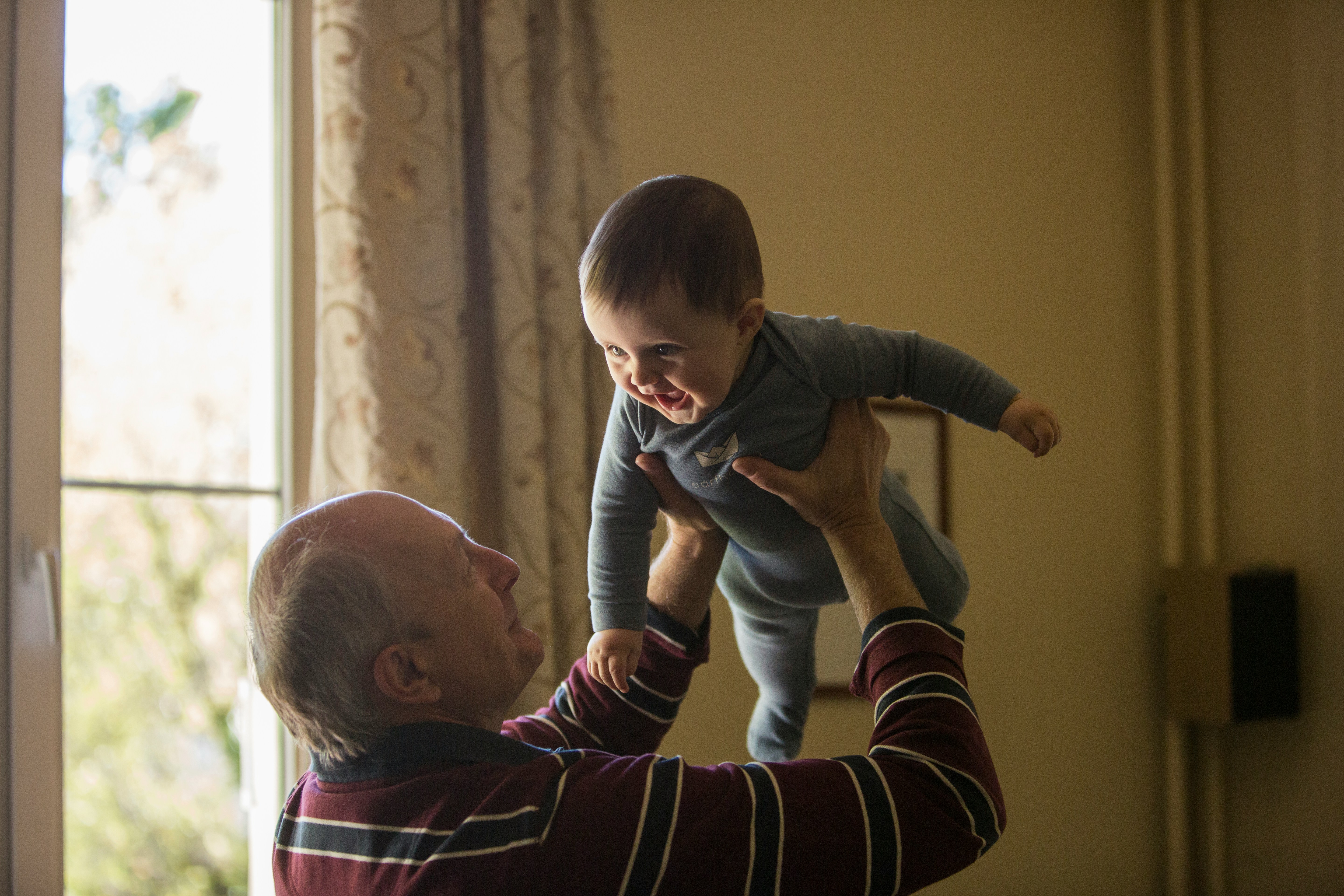
 Deacon Dan Schneider is a retired general manager of industrial distributors. He and his wife Vicki have been married for over 50 years. They are the parents of eight children and thirty grandchildren. He has a degree in Family Life Education from Spring Arbor University. He was ordained a Permanent Deacon in 2002. He has a passion for working with engaged and married couples and his main ministry has been preparing couples for marriage.
Deacon Dan Schneider is a retired general manager of industrial distributors. He and his wife Vicki have been married for over 50 years. They are the parents of eight children and thirty grandchildren. He has a degree in Family Life Education from Spring Arbor University. He was ordained a Permanent Deacon in 2002. He has a passion for working with engaged and married couples and his main ministry has been preparing couples for marriage.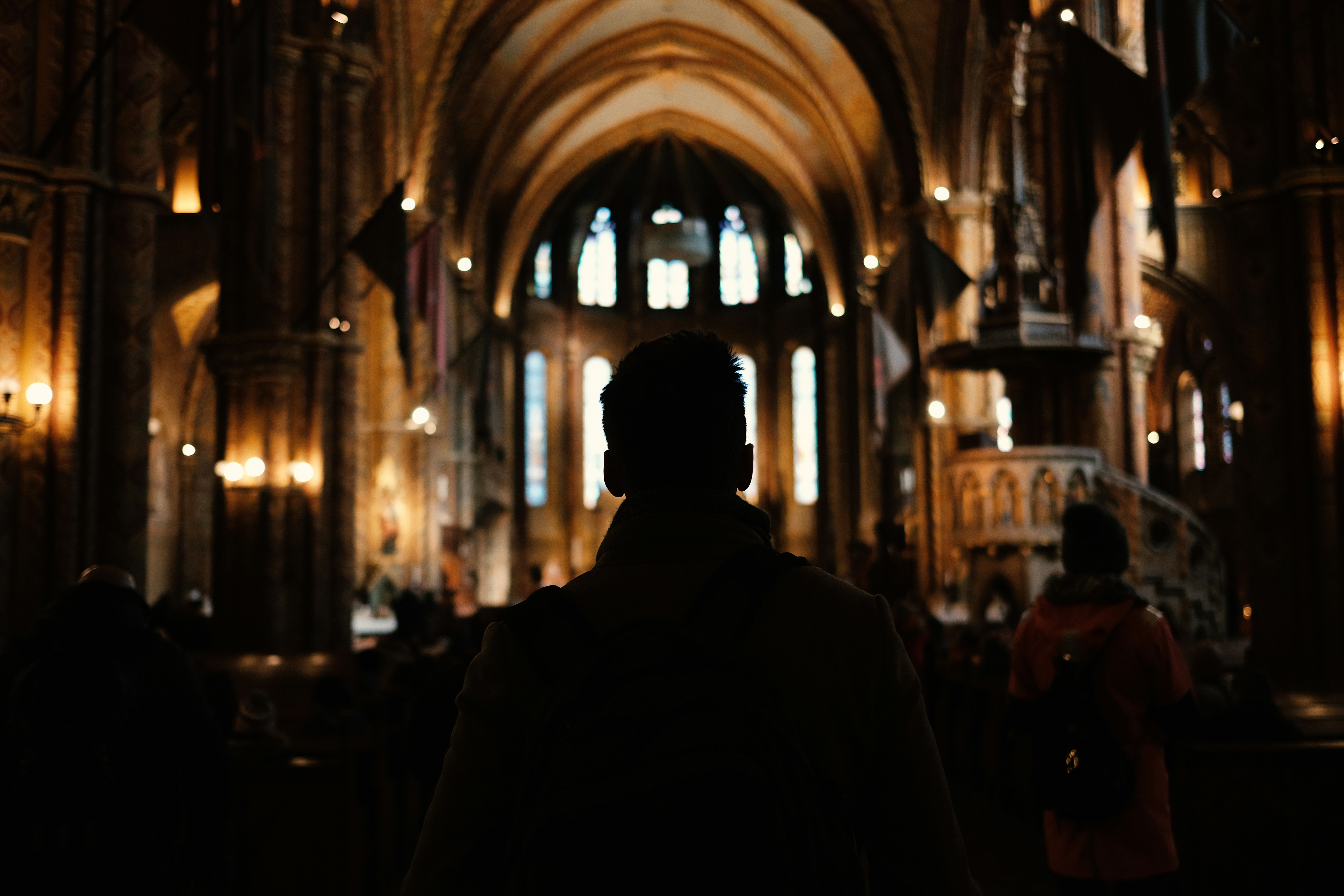


 Tami Urcia grew up in Western Michigan, a middle child in a large Catholic family. She spent early young adulthood as a missionary in Mexico, studying theology and philosophy, then worked and traveled extensively before finishing her Bachelor’s Degree in Western Kentucky. She loves tackling projects, finding fun ways to keep her little ones occupied, quiet conversation with the hubby and finding unique ways to love. She works full time, is a guest blogger on
Tami Urcia grew up in Western Michigan, a middle child in a large Catholic family. She spent early young adulthood as a missionary in Mexico, studying theology and philosophy, then worked and traveled extensively before finishing her Bachelor’s Degree in Western Kentucky. She loves tackling projects, finding fun ways to keep her little ones occupied, quiet conversation with the hubby and finding unique ways to love. She works full time, is a guest blogger on 
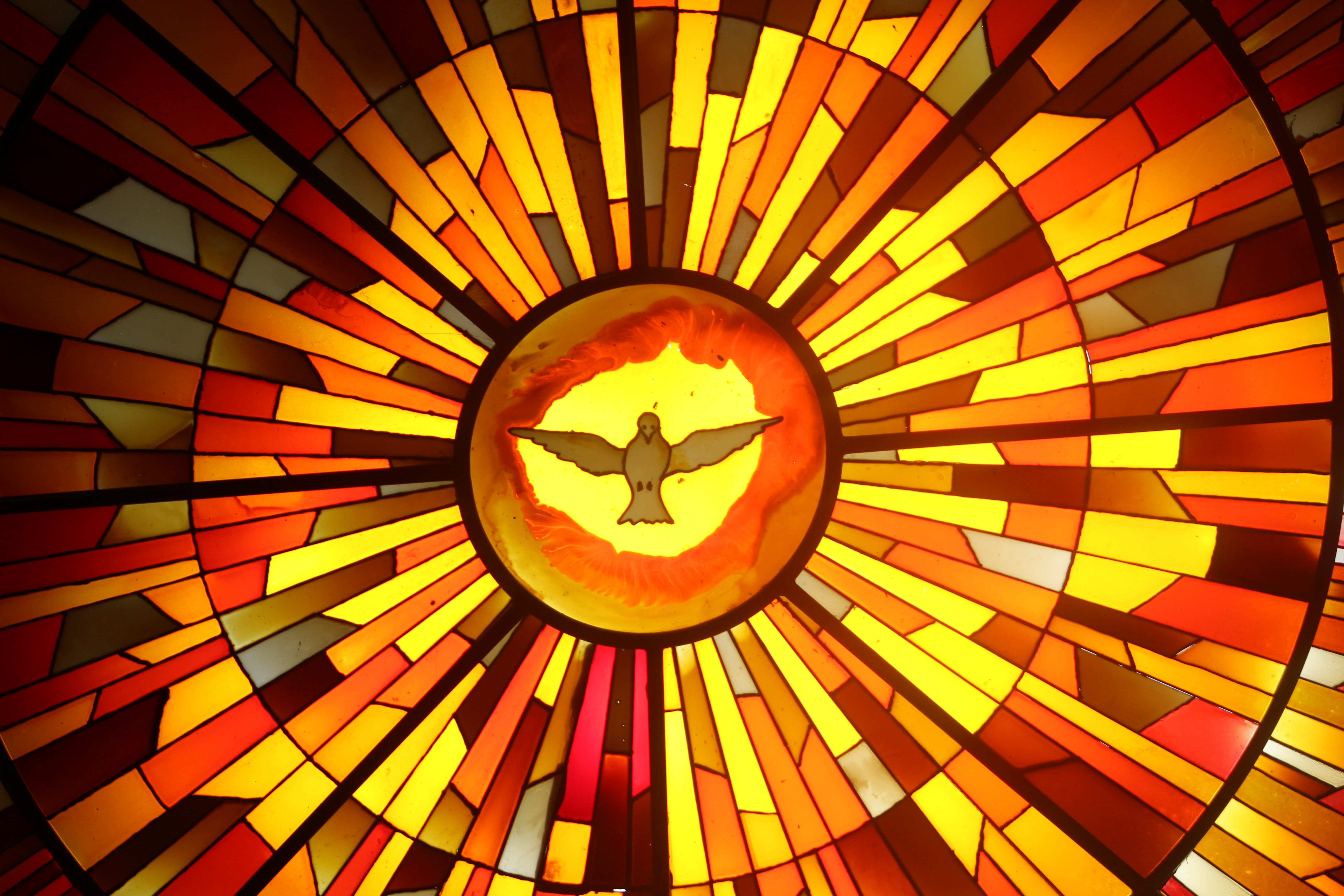

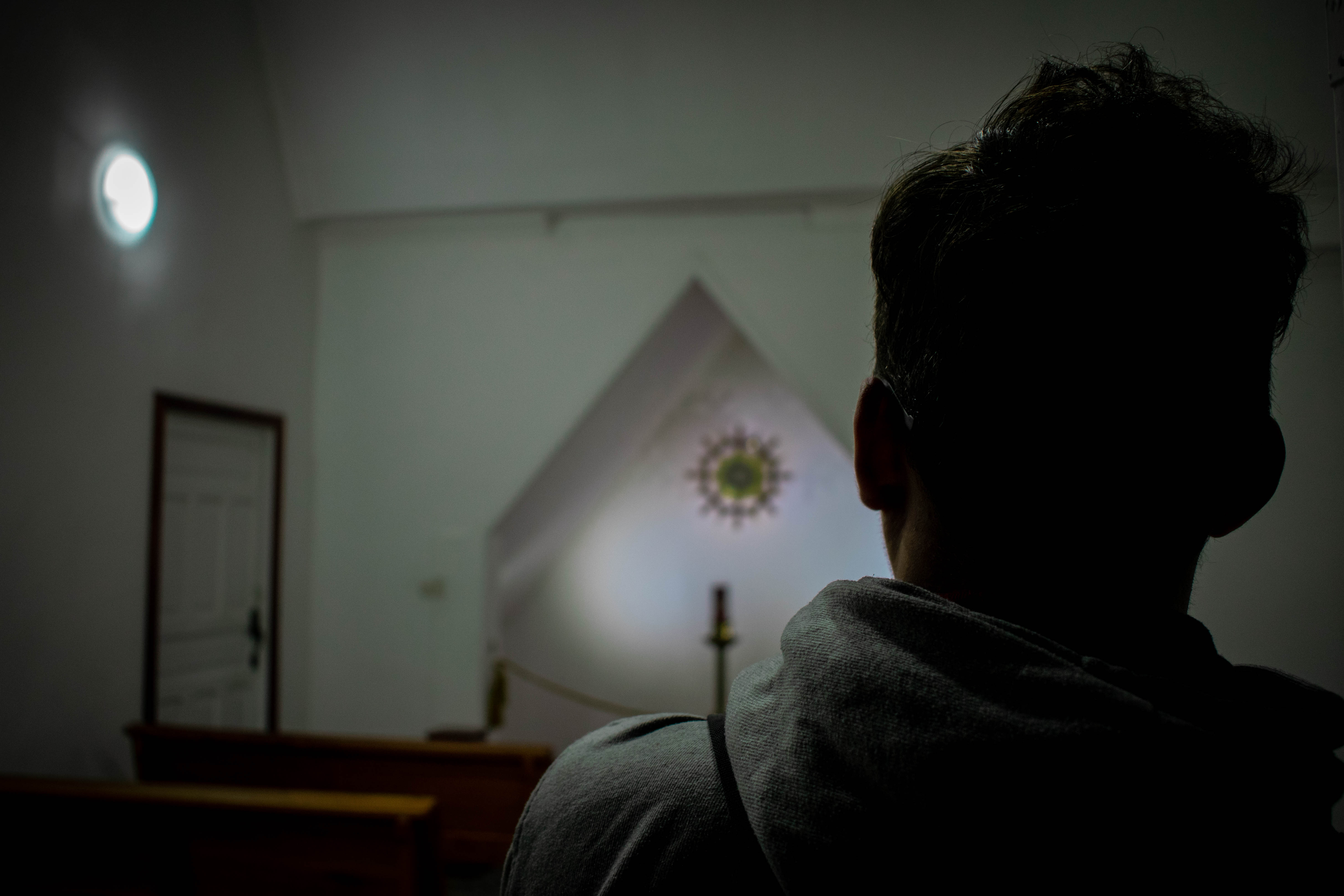

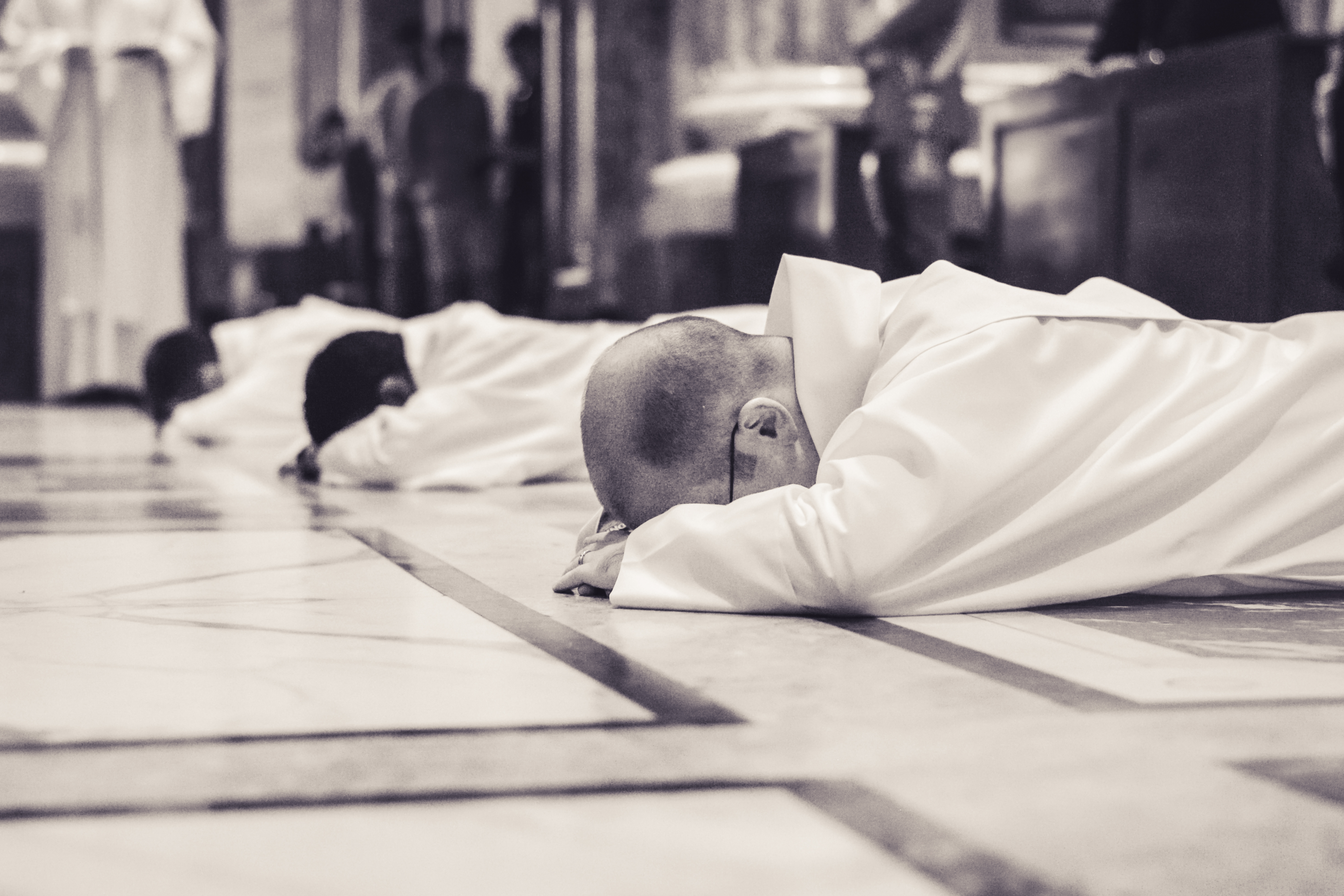
 Mike Karpus is a regular guy. He grew up in Michigan’s Upper Peninsula, graduated from Michigan State University and works as an editor. He is married to a Catholic school principal, raised two daughters who became Catholic school teachers at points in their careers, and now relishes his two grandchildren, including the older one who is fascinated with learning about his faith. He also has served on a Catholic school board, a pastoral council and a parish stewardship committee. He currently is a lector at Mass, a Knight of Columbus, Adult Faith Formation Committee member and a board member of the local Habitat for Humanity organization. But mostly he’s a regular guy.
Mike Karpus is a regular guy. He grew up in Michigan’s Upper Peninsula, graduated from Michigan State University and works as an editor. He is married to a Catholic school principal, raised two daughters who became Catholic school teachers at points in their careers, and now relishes his two grandchildren, including the older one who is fascinated with learning about his faith. He also has served on a Catholic school board, a pastoral council and a parish stewardship committee. He currently is a lector at Mass, a Knight of Columbus, Adult Faith Formation Committee member and a board member of the local Habitat for Humanity organization. But mostly he’s a regular guy.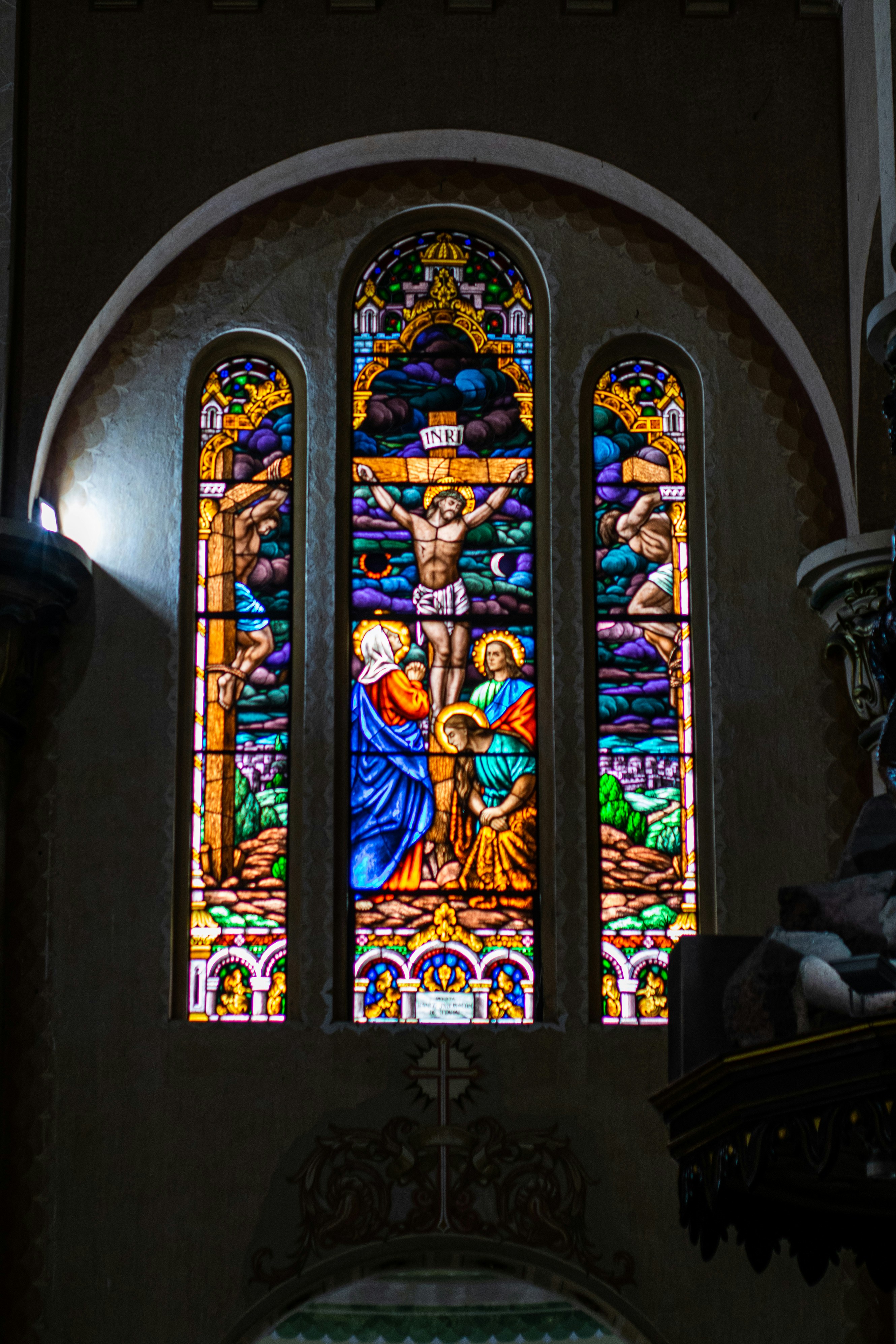
 Kate Taliaferro is an Air Force wife and mother. She is blessed to be able to homeschool, bake bread and fold endless piles of laundry. When not planning a school day, writing a blog post or cooking pasta, Kate can be found curled up with a book or working with some kind of fiber craft. Kate blogs at
Kate Taliaferro is an Air Force wife and mother. She is blessed to be able to homeschool, bake bread and fold endless piles of laundry. When not planning a school day, writing a blog post or cooking pasta, Kate can be found curled up with a book or working with some kind of fiber craft. Kate blogs at 
 A lover of Jesus Christ, a wife, and a mother of five,
A lover of Jesus Christ, a wife, and a mother of five, 

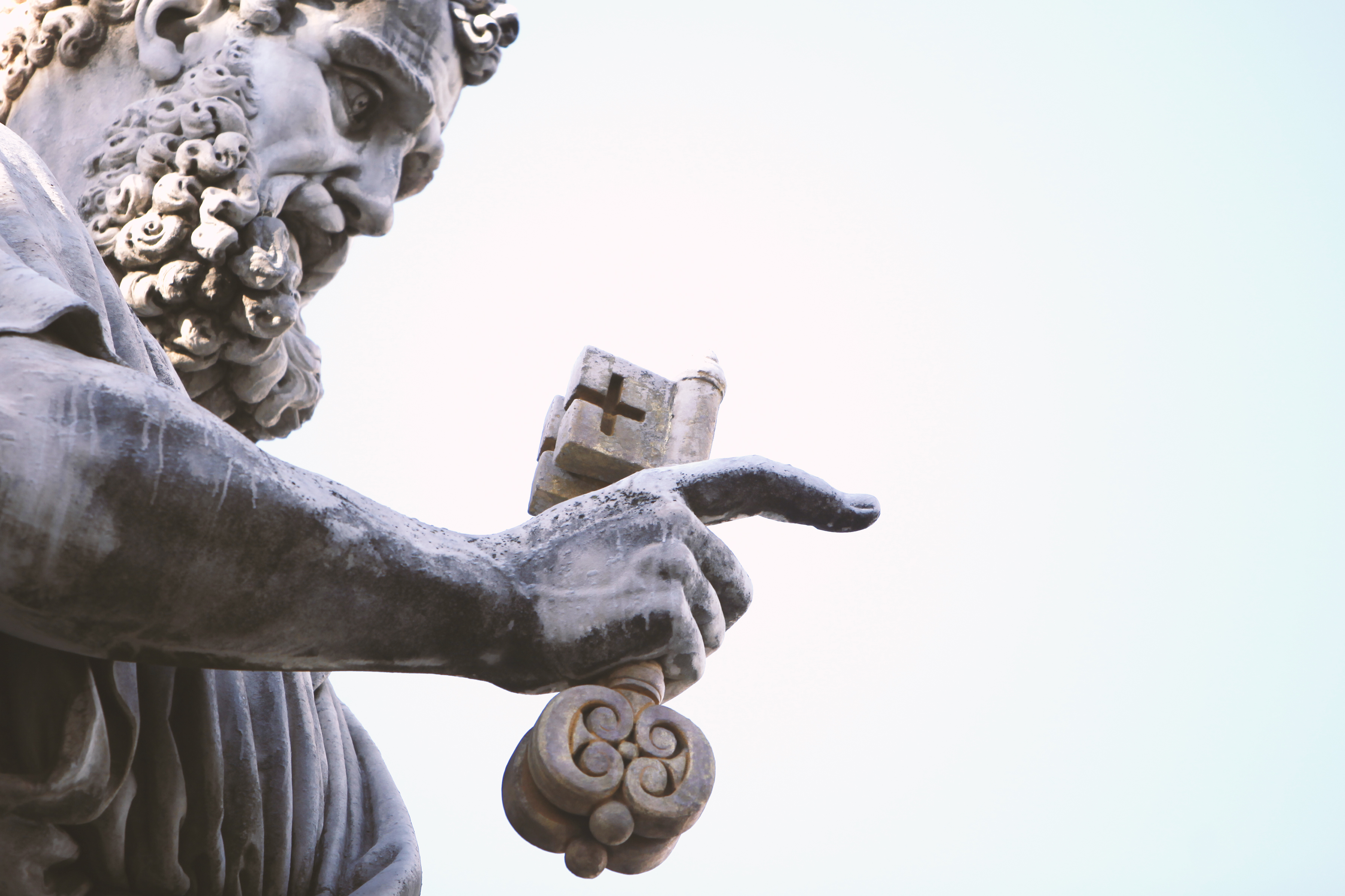
 Kathryn Mulderink, MA, is married to Robert, Station Manager for Holy Family Radio. Together they have seven children (including Father Rob), and seven grandchildren. She is President of the local community of Secular Discalced Carmelites and has published five books and many articles. Over the last 30 years, she has worked as a teacher, headmistress, catechist, Pastoral Associate, and DRE, and as a writer and voice talent for Catholic Radio. Currently, she serves the Church by writing and speaking, and by collaborating with various parishes and to lead others to encounter Christ and engage their faith. Her website is
Kathryn Mulderink, MA, is married to Robert, Station Manager for Holy Family Radio. Together they have seven children (including Father Rob), and seven grandchildren. She is President of the local community of Secular Discalced Carmelites and has published five books and many articles. Over the last 30 years, she has worked as a teacher, headmistress, catechist, Pastoral Associate, and DRE, and as a writer and voice talent for Catholic Radio. Currently, she serves the Church by writing and speaking, and by collaborating with various parishes and to lead others to encounter Christ and engage their faith. Her website is 